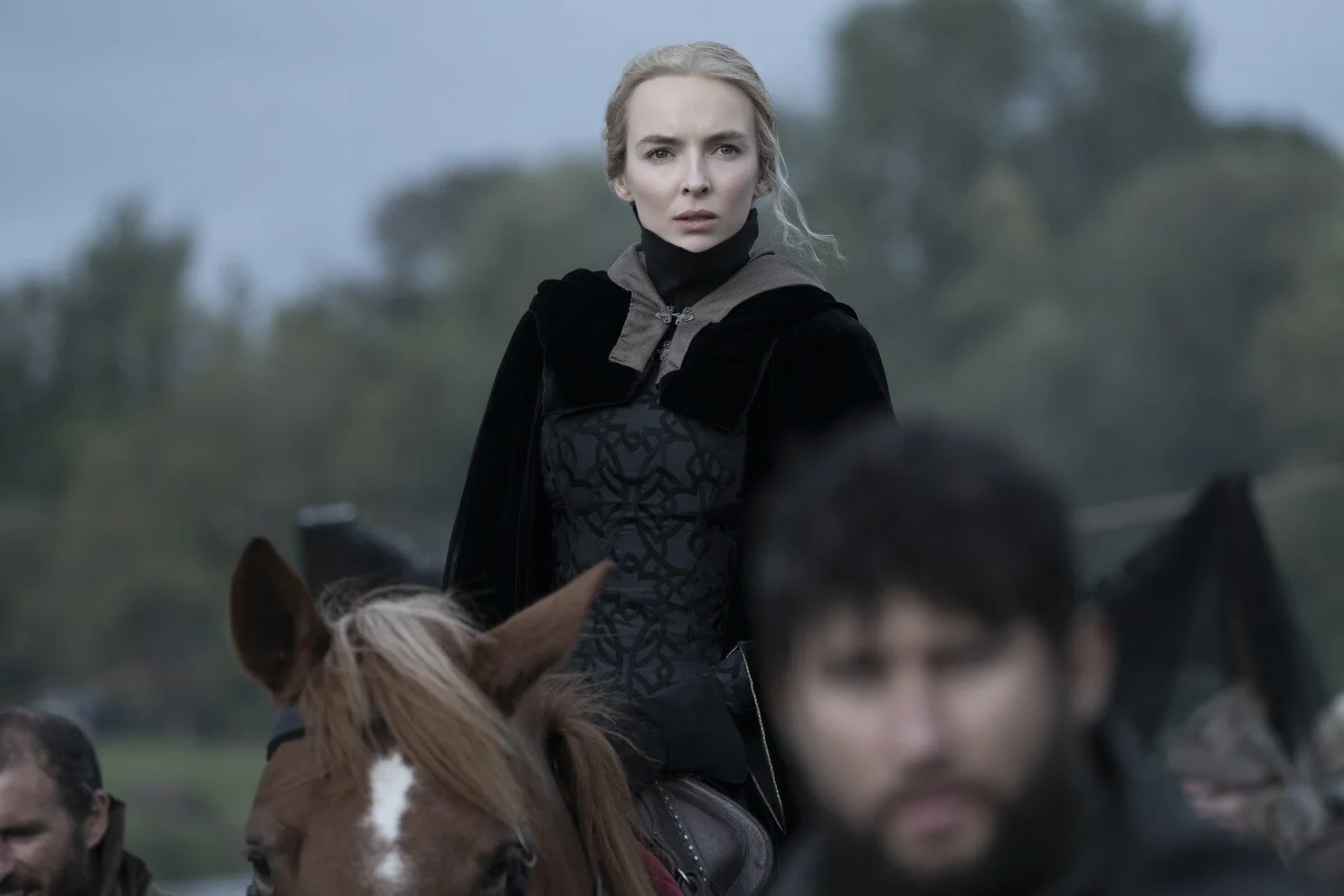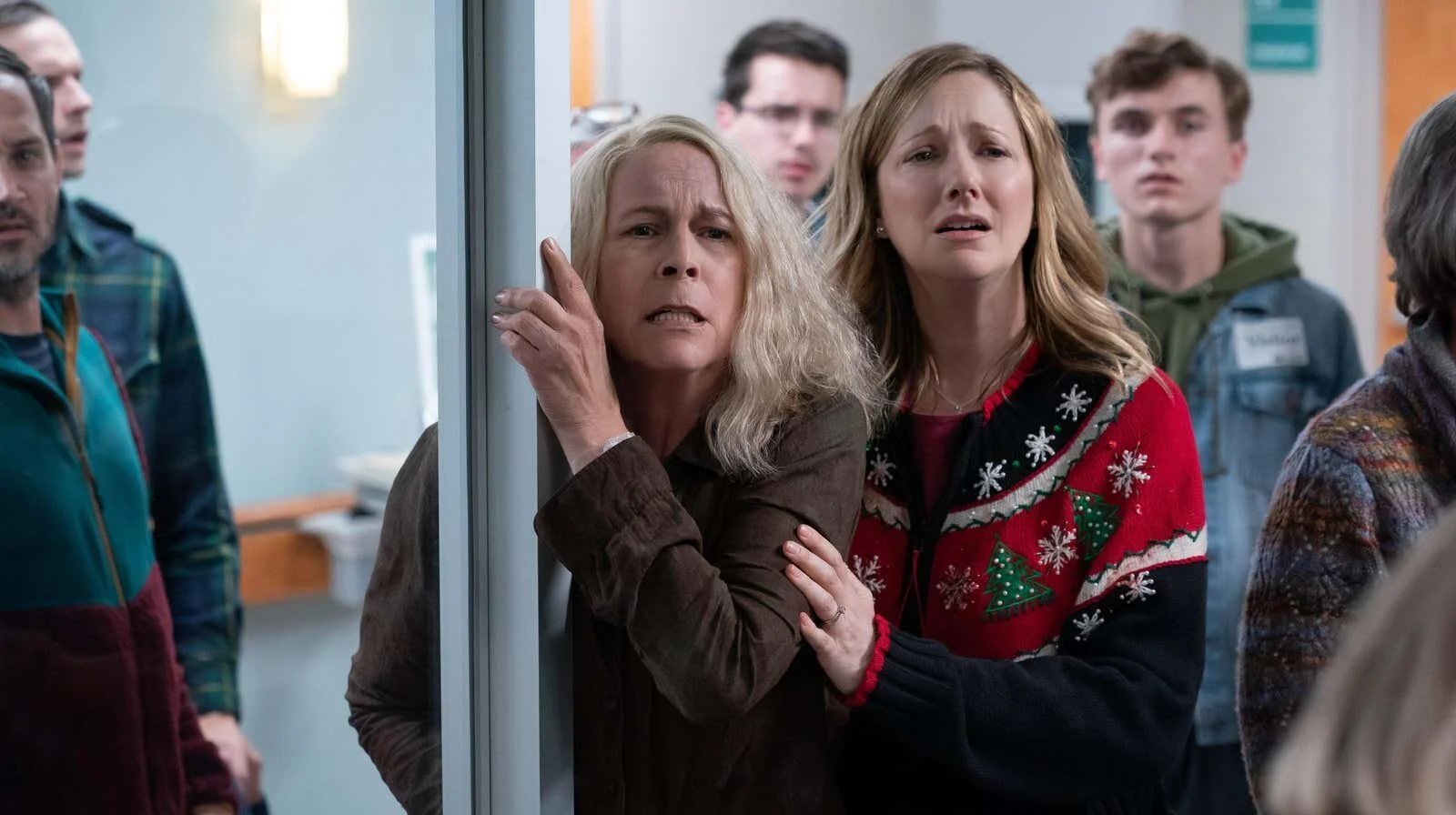The Last Duel
Director Ridley Scott heads back to the Middle Ages for The Last Duel, the engrossing true story of France’s 14th century #MeToo moment, which culminates in bloody man-to-man combat. It’s based on the first screenplay by Matt Damon and Ben Affleck since their Oscar-winning Good Will Hunting (1997), but they didn’t write it alone. The film recounts the story of two male friends-turned-rivals and the woman they will eventually duel over, so Damon and Affleck wisely worked with ace screenwriter Nicole Holofcener (Can You Ever Forgive Me?) to ensure a gender-balanced perspective.
The subject matter — an accusation of rape that the French ruling class would like to go away — speaks to present-day debates, but the setting is the gritty late 1300s. That’s when peripheral nobleman Jean de Carrouges (Damon) and his friend, common-born striver Jacques Le Gris (Adam Driver), have a falling out after fighting side by side against England. Jean has married Marguerite de Thibouville (Jodie Comer, from TV’s Killing Eve), and he believes her dowry should include a fertile valley to which Jacques now holds the title. The local lord, Pierre d'Alençon (Affleck), backs Jacques’s claim, so Jean’s lawsuits to claim the property go nowhere.
All this is back story for Marguerite’s sexual assault allegation against Jacques. His defense is, essentially, “She wanted it.” This time, the court case goes all the way to the king, Charles VII (Alex Lawther, The Imitation Game), who authorizes a duel. The winner would be determined by God, the theory went, and God would only back the truthful man. It was France’s last instance of judicial combat, and it’s a scene well worth waiting a couple hours for, as Scott’s staging may be the best such battle recreated for a movie. It’s harsh and gory, yet every parry and twist is vivid and clear, and the men’s determination and desperation is palpable.
Driver is an inalterably contemporary actor, but his out-of-time charisma and self-assurance work well for the ambitious Jacques. Damon, with a deep scar carved on one side of his face, plays the ever-thwarted Jean with a balance of masculine toxicity and underdog appeal. And Comer makes the most of her trademark inscrutability to keep Marguerite’s motives enticingly cryptic.
Actually, each lead actor has to give three slightly different performances, as the story unfolds three times, from the perspectives of Jean, Jacques, and Marguerite. The same incidents play out differently depending on the point-of-view character, naturally, and each retelling expands the narrative with new scenes and characters. The literate and neatly structured screenplay also layers on plenty of subplots involving titular inheritance, inconstant friends, Marguerite’s relationship with her bitter mother-in-law (Harriet Walter), financial intrigues, and the like, all of which play into the central conflict in some way. Scott signals which of the three accounts may be the “truth,” but as in many #MeToo narratives, there’s plenty of ambiguity to muddy any moral certainty.
For all its of-the-moment theming, The Last Duel is equally revelatory as a period piece, delineating the petty squabbles, obscure customs, and daunting challenges of life in the late Middle Ages. It’s set about 200 years after Scott’s previous foray into Medieval history, with the underrated Crusades saga Kingdom of Heaven (2005). In both films, the director believably recreates the era with an abundance of mud and blood, frigid castles, chaotic battles, and a muted color palette, while still maintaining a certain costume-drama grandeur. (Both movies are also probably longer than they needed to be.) It’s not a time period you’d want to live in, but it makes for a fulfilling visit.
Grade: A-minus. Rated R. Now playing at the AMC River Hills, Carolina Cinemark, and Regal Biltmore Grande.
(Photo: Patrick Redman/20th Century Studios)




